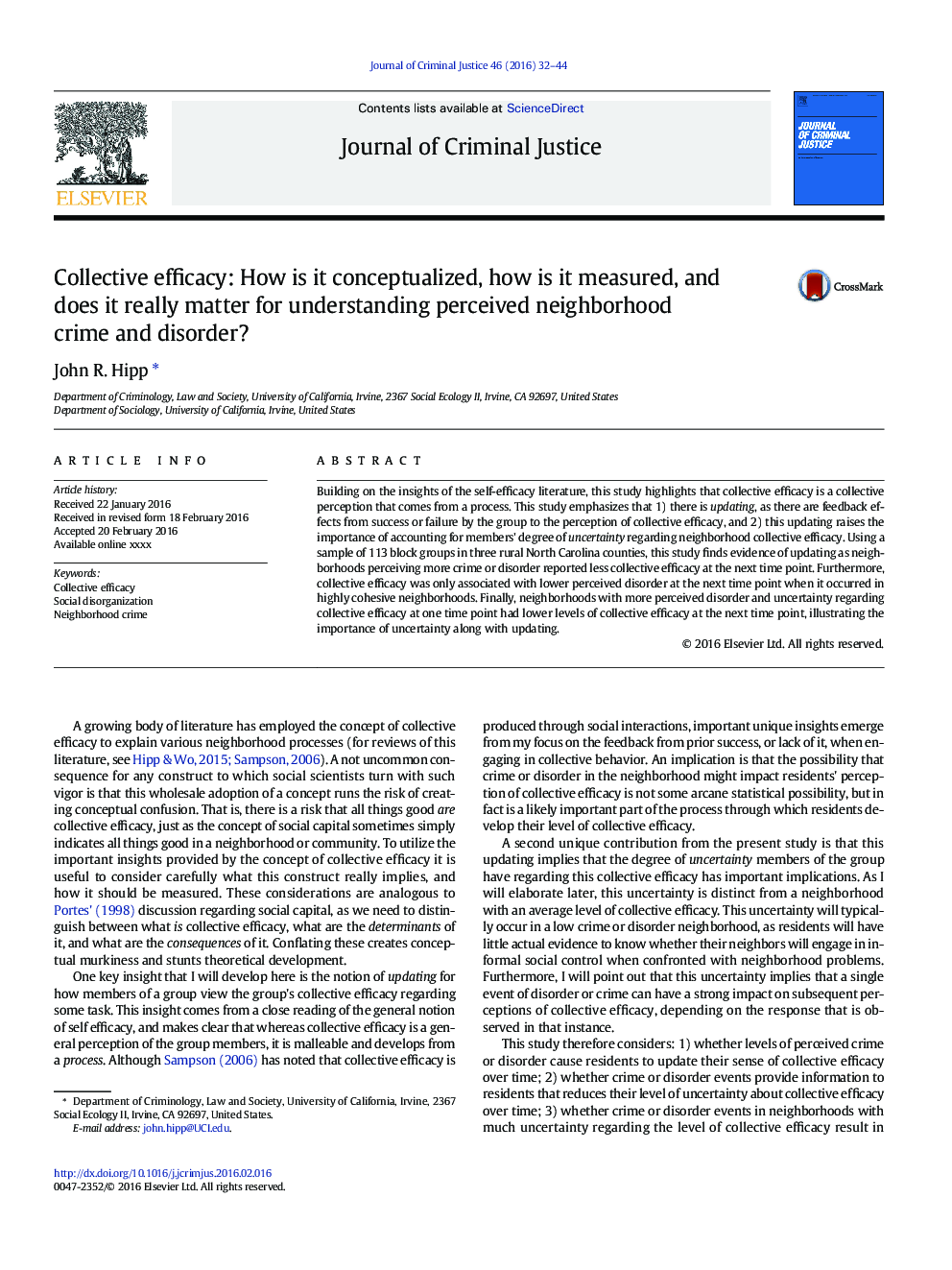| Article ID | Journal | Published Year | Pages | File Type |
|---|---|---|---|---|
| 7242282 | Journal of Criminal Justice | 2016 | 13 Pages |
Abstract
Building on the insights of the self-efficacy literature, this study highlights that collective efficacy is a collective perception that comes from a process. This study emphasizes that 1) there is updating, as there are feedback effects from success or failure by the group to the perception of collective efficacy, and 2) this updating raises the importance of accounting for members' degree of uncertainty regarding neighborhood collective efficacy. Using a sample of 113 block groups in three rural North Carolina counties, this study finds evidence of updating as neighborhoods perceiving more crime or disorder reported less collective efficacy at the next time point. Furthermore, collective efficacy was only associated with lower perceived disorder at the next time point when it occurred in highly cohesive neighborhoods. Finally, neighborhoods with more perceived disorder and uncertainty regarding collective efficacy at one time point had lower levels of collective efficacy at the next time point, illustrating the importance of uncertainty along with updating.
Related Topics
Social Sciences and Humanities
Psychology
Applied Psychology
Authors
John R. Hipp,
